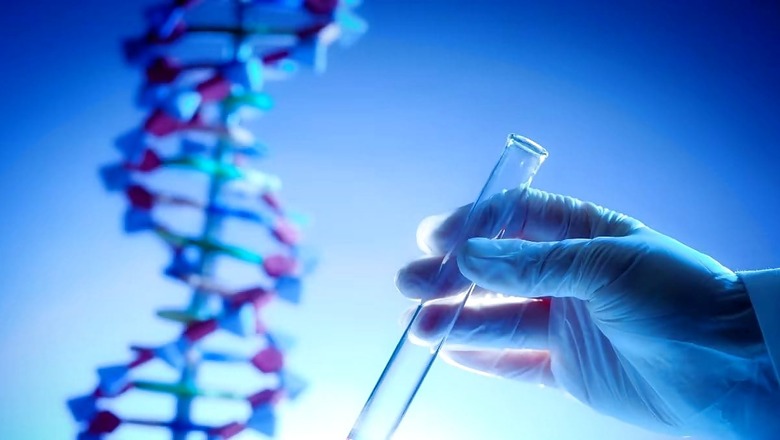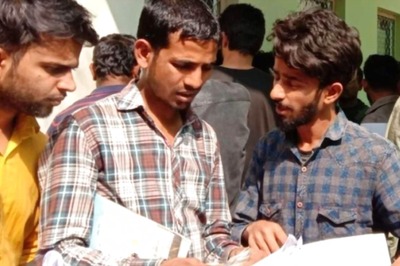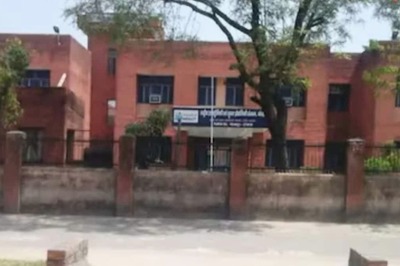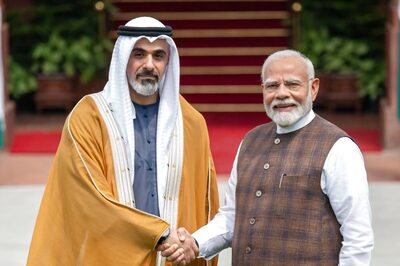
views
Indian scientists are close to completing reference genome, with sequencing of samples from 10,000 individuals from around 99 communities already done.
This means that India would now be able to build a database that could lead to gene-based remedies, and provide answers to questions on certain diseases, effectiveness of drugs and medicines.
At present, the US, UK and China are the only countries that have programmes to sequence at least 1,00,000 of their genomes.
The Indian scientists have also found certain variants that are indicative of several cancers and hypertrophic cardiomyopathy (thickening of heart muscles) and variants that may be responsible for resistance against anti-coagulants (blood thinners) and antiviral drugs, according to a Times of India report.
Union science and technology minister Jitendra Singh said genome study or sequencing will determine the future healthcare strategies across the world, both therapeutically and prophylactically.
Why is Genome Sequencing Important?
The analysis of 5,750 genomes has helped in identifying 135 million genetic variants in India.
Prof Y Narahari, a senior scientist and Indian Institute of Science, Bengaluru, who is also leading the Genome project, said the data will help analyse the physical traits or disease history of population, as quoted by a Times Now report. “It can also help in identifying resistance indicating variants, for examples, genes that might take certain medicines or anaesthetics ineffective in certain population.”
Another scientist, Prof K Thangaraj, senior scientist at the Centre for Cellular and Molecular Biology in Hyderabad, and project lead, as quoted by Times Now, said that India needs database specific to it because mutations found in the country might not be present globally. For example, a mutation, MYBPC3 that leads to cardiac arrest in young people is found in 4.5% of the Indian population but not globally.
What is Genome Sequencing?
A genome is the complete set of DNA sequences in an organism that includes embryogenesis, growth, responding to environment and healing.
The human genome – a map of 23 large DNA sequences (chromosomes) — comprises a total of 3 billion base pairs contained within the nuclei of each cell.
The complete genome sequence will be valuable for studies that aim to understand how DNA differs from person to person.
According to Martin Carkett and Alexander Honkala, experts in the field, while sequence of base pairs is virtually identical in every human being, but different from a chimpanzee or a rat, subtle difference in the genome make an individual unique, as quoted by The Times of India.
What is India’s ‘10,000 genome project’?
About 20 institutions across India are involved in the ‘10,000 Genome’ project with the Indian Institute of Science (IISc), Bengaluru and the Centre for Cellular and Molecular Biology, Hyderabad being the lead institutions coordinating the project.
Prof Y Narahari and Dr K Thangaraj, the joint coordinators of GenomeIndia, said beyond the sheer scale of sequencing and establishing a reference genome, the creation of a biobank housing 20,000 blood samples at the Centre for Brain Research, coupled with data archiving at the Indian Biological Data Centre, exemplify the project’s commitment to transparency, collaboration and future research endeavours.
The data is being stored at the Indian Biological Data Centre set up by Union government’s Department of Biotechnology at the Regional Centre for Biotechnology, Faridabad.
Minister Jitendra Singh explained that India’s 1.3 billion population consists of more than 4,600 population groups, and many of them are endogamous. “These factors have contributed to the genetic diversity of the current population. Thus, the Indian population harbours distinct variations and, often, many disease-causing mutations are amplified within some of these groups. Therefore, findings from population-based or disease-based human genetics research from other populations of the world cannot be extrapolated to Indians”.




















Comments
0 comment